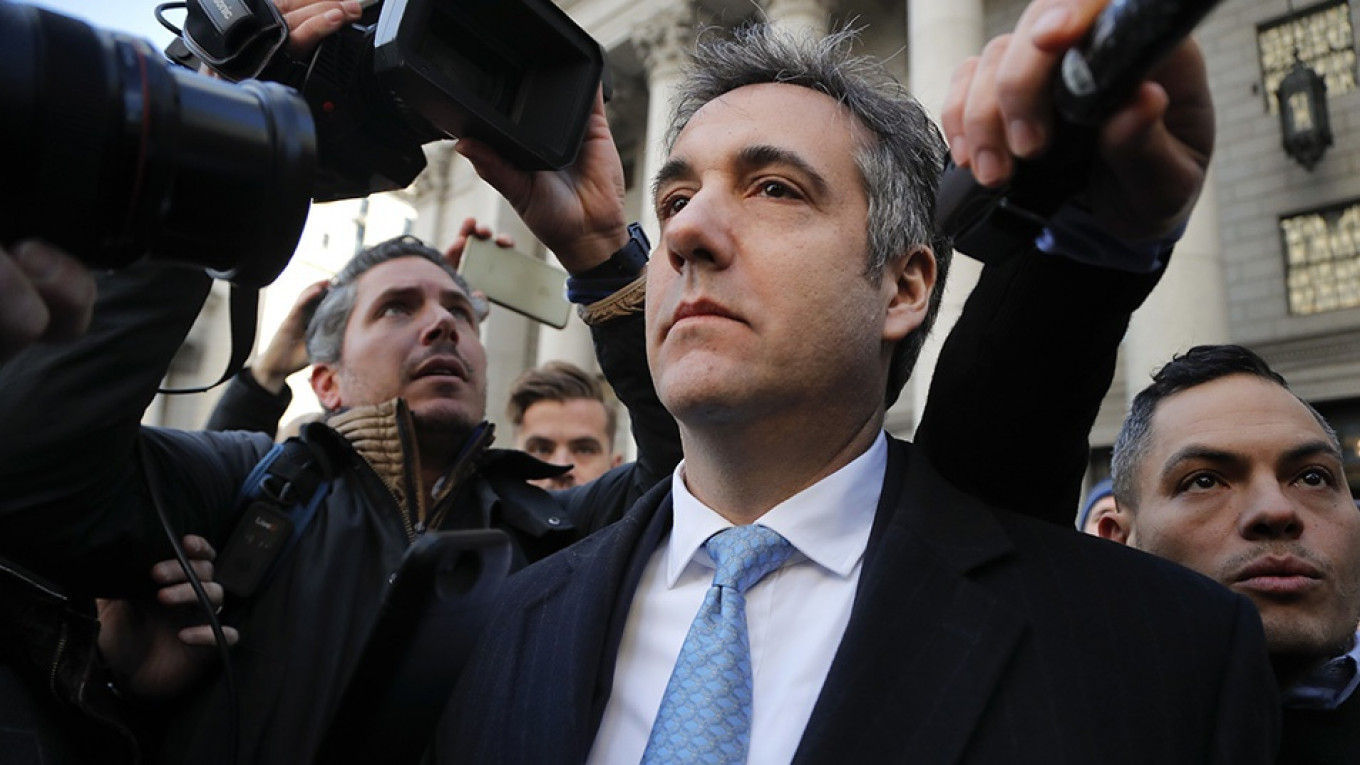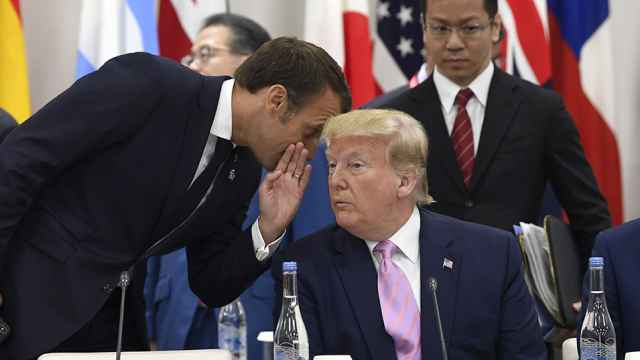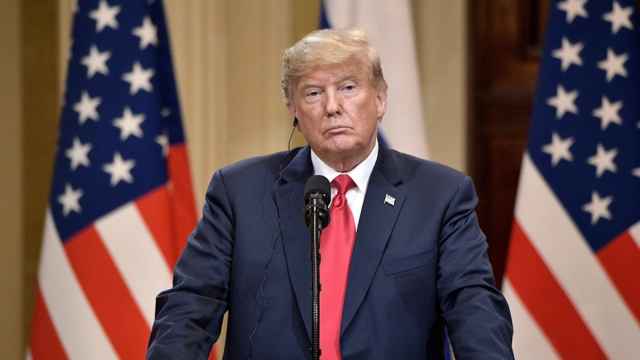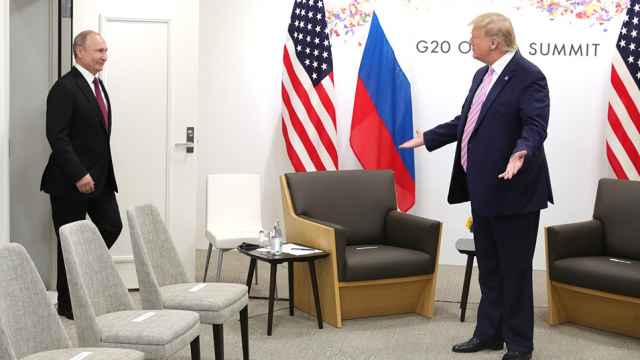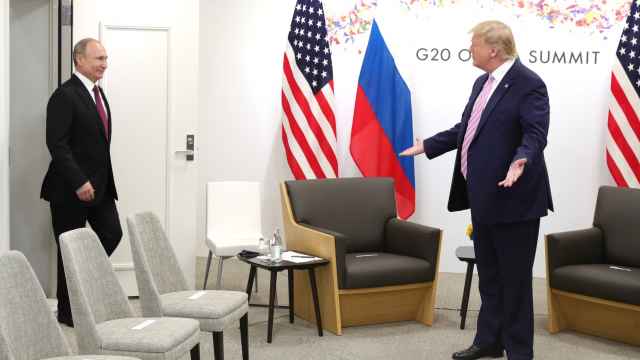Michael Cohen, President Donald Trump's former longtime personal lawyer, pleaded guilty on Thursday to lying to Congress about a proposed Trump Organization skyscraper in Moscow, prompting the president to lash out at Cohen as a liar and "weak person."
The unexpected plea stemmed from Special Counsel Robert Mueller's intensifying investigation into Russia's role in the 2016 election and whether Trump's campaign conspired with Moscow to boost his chances, and put new pressure on the president.
Cohen, a former member of Trump's inner circle who in the past called himself the president's "fixer," described efforts to pursue Trump's ambitious Moscow real estate project deep into the 2016 U.S. presidential campaign, later than previously disclosed.
He entered his guilty plea in federal court in Manhattan to one count of making false statements to two congressional panels about the project. According to a court document, Cohen briefed Trump on the project more than three times, as well as members of his family.
Not long after Cohen entered his plea, Trump abruptly canceled a meeting with Russian President Vladimir Putin scheduled to take place during this week's Group of 20 industrialized nations summit in Argentina, citing the current Ukraine crisis.
Cohen had pleaded guilty in August to eight criminal charges, including tax evasion, bank fraud and campaign finance violations, in a separate case brought by federal prosecutors in New York. His sentencing in that case is scheduled for Dec. 12.
Cohen said in court on Thursday that he submitted a written statement to Congress in 2017 saying that all efforts relating to the real estate project in Moscow had ceased by January 2016. Cohen said that in fact, those efforts continued until June 2016, after Trump had clinched the Republican presidential nomination.
The proposal to build a tower bearing Trump's name in the Russian capital ultimately did not materialize. Cohen provided false statements to both the Senate and House of Representatives intelligence committees to create the impression the project had ended by the time the political primary season began, the charging document said.
Trump on Thursday distanced himself from Cohen, who last year told an interviewer he would "take a bullet" for the president.
"He's a weak person and not a very smart person," Trump said to reporters. "He's got himself a big prison sentence. And he's trying to get a much lesser prison sentence by making up this story."
Trump, who last week submitted written answers to questions posed in Mueller's investigation, called the Moscow project a "deal that didn't happen" mostly because he was busy running for president, but defended its propriety.
"Even if he was right, it doesn't matter because I was allowed to do whatever I wanted during the campaign," Trump said. "I was running my business, a lot of different things during the campaign."
"Everybody knows about this deal. I wasn't trying to hide anything," he said.
Trump lawyer Rudy Giuliani said the president had provided written answers to questions from Mueller on the Moscow project. Asked whether there was anything in those answers that contradicted Cohen on the project, Giuliani told Reuters: "Not that I know of."
Cohen said that in his statement to Congress he claimed to have had limited contact with Trump concerning the project, when in fact it had been "more extensive." Cohen also said he falsely told Congress he never took any steps toward traveling to Russia when in fact he had discussed going there, although he never went.
'Political messaging'
"I made these misstatements to be consistent with individual 1's political messaging and out of loyalty to individual 1," Cohen, who previously identified "individual 1" as Trump, said in court.
A source familiar with Cohen's discussions with the Mueller team told Reuters that Cohen had spent 60 to 70 hours cooperating with Mueller's investigators since July.
Trump has called Mueller's investigation, which has cast a cloud over his presidency, a witch hunt. Mueller also is looking into whether Trump has sought to unlawfully obstruct the probe.
Trump, a wealthy real estate developer and reality television star before entering politics, has flirted with building in Moscow several times over the years. During a visit to Russia in 2013 for the Miss Universe pageant, he told journalists he was talking with potential Russian partners for a Moscow skyscraper modeled on New York's Trump Tower.
The proposed Moscow project also involved Felix Sater, a Russian-born property developer and former business associate of Trump.
According to the charging documents, Cohen told an associate who matches the description of Sater that he was willing to travel to Moscow to pursue the project before the July 2016 Republican National Convention in Cleveland, and that Trump could travel to Moscow after the convention "once he becomes the nominee" of the Republican Party.
Cohen spoke in January 2016 with an assistant to Putin's press secretary about the project, and requested help in securing land and financing, the charging documents said.
Sater said he and Cohen at one point talked about giving a $50 million penthouse to Putin as a way to justify raising the prices of other units by another $250 million, confirming a discussion first reported by BuzzFeed News.
"I figured that if Vladimir Putin lived in the tower every oligarch in Russia would want to buy an apartment there," Sater said. "This wasn’t an official proposal or anything. It was a chat with Cohen about how do we get top dollar."
Mueller, who took over the Russia investigation from the FBI in May 2017, has secured guilty pleas from several former Trump aides and associates, including former campaign chairman Paul Manafort and former national security adviser Michael Flynn, and also has charged a series of Russian individuals and entities.
Joshua Dressler, an Ohio State University law professor, noted that Cohen's plea came after Trump submitted his written responses to Mueller.
"If Trump was asked anything relating to the matters about which Cohen has now admitted he lied, then the president could be found to have lied to the special prosecutor, which is a crime and impeachable offense," Dressler said.
A Message from The Moscow Times:
Dear readers,
We are facing unprecedented challenges. Russia's Prosecutor General's Office has designated The Moscow Times as an "undesirable" organization, criminalizing our work and putting our staff at risk of prosecution. This follows our earlier unjust labeling as a "foreign agent."
These actions are direct attempts to silence independent journalism in Russia. The authorities claim our work "discredits the decisions of the Russian leadership." We see things differently: we strive to provide accurate, unbiased reporting on Russia.
We, the journalists of The Moscow Times, refuse to be silenced. But to continue our work, we need your help.
Your support, no matter how small, makes a world of difference. If you can, please support us monthly starting from just $2. It's quick to set up, and every contribution makes a significant impact.
By supporting The Moscow Times, you're defending open, independent journalism in the face of repression. Thank you for standing with us.
Remind me later.


